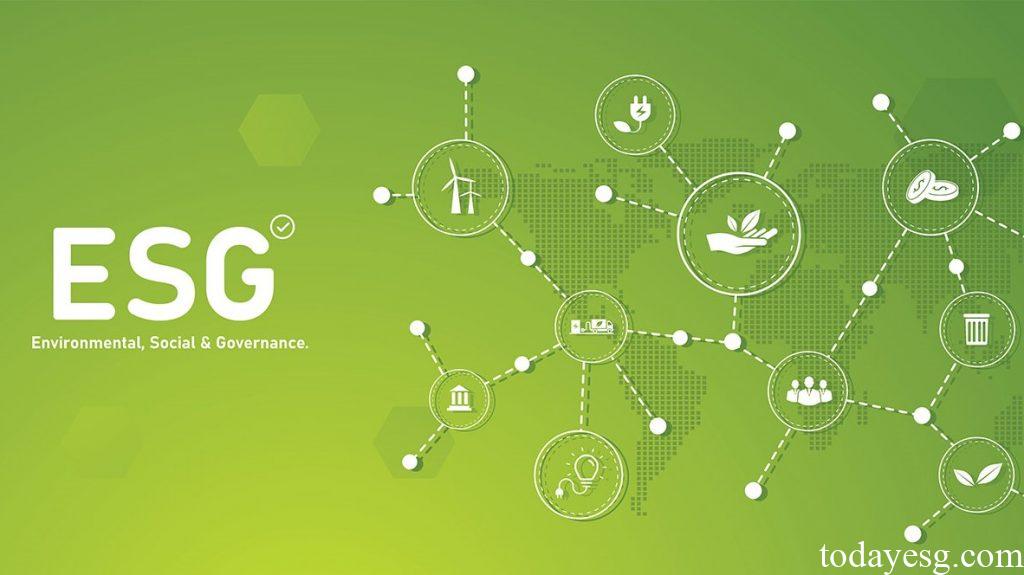ESG Development Report for Listed Companies
Fidelity has released an ESG development report for Chinese listed companies, investigating 262 executives to understand how they view ESG priorities and the actions taken.
ESG has become an important content of information disclosure for global listed companies, with over 90% of companies in the S&P 500 Index in the United States publishing ESG reports. 86% of the constituent companies in the China CSI 300 Index have disclosed ESG reports. In 2022, the China Enterprise Reform and Development Society also issued voluntary disclosure guidelines to enhance the standardization of ESG disclosure.
ESG Regulatory Policies for listed companies
As an essential link in the global supply chain, the ESG development of Chinese listed companies is crucial for long-term growth, and the development of regulatory policies is a direct factor guiding companies in information disclosure.
From a global perspective, the Financial Stability Board established the Task Force on Climate Related Financial Disclosures (TCFD) in 2017 to provide advice on the information disclosed by companies. The International Financial Reporting Standards Foundation established the International Sustainability Standards Board (ISSB) in 2021 to coordinate different ESG disclosure frameworks.
The development of global regulatory policies has affected the ESG development of Chinese listed companies. For example, the Corporate Sustainability Reporting Directive (CSRD) of the European Union requires non-EU companies operating in the EU to provide relevant disclosures. The Carbon Border Adjustment Mechanism of the European Union has also requested Chinese export companies to provide information on their carbon emissions.

ESG elements have become part of the economic planning for Chinese companies. To achieve the peak of carbon emissions in 2030 and achieve carbon neutrality in 2060, a large amount of capital investment and the development of green finance sector are required. China has collaborated with the European Union to establish a Common Ground Taxonomy to strengthen the standardization of corporate green economy actions.
ESG Information Disclosure for Listed Companies
In terms of ESG disclosure, 53% of surveyed companies have publicly disclosed their ESG, CSR, or sustainable development strategy, and two-thirds have already released annual ESG reports. The disclosure ratio of the report is directly related to the size of the company, with the disclosure ratios of large, medium-sized, and small companies surveyed being 94%, 48%, and 7%, respectively.
Related Post : IMA Releases China Companies ESG Disclosure Report
66% companies consulted key stakeholders for practical evaluation. 56% hired ESG experts to enhance strategic capabilities. In terms of disclosure standards, 52% referred to the Chinese Corporate Social Responsibility Reporting Guidelines (CASS-ESG 5.0), and 26% referred to international guidelines such as the Global Reporting Initiative and ISSB.
In terms of ESG priorities, the focus is on the comprehensive aspects of governance and society. In 2022, Chinese regulatory authorities require that the board of directors of listed companies have at least one-third of independent directors, and independent directors need to occupy more than half of the compensation committee. In April this year, the new management measures for independent directors once again strengthened the governance capabilities of listed companies.
ESG Talent for Listed Companies
Appropriate ESG talents are an important factor in improving ESG level. 71% of companies hire ESG talents to develop their ESG strategies, and 70% are creating specialized ESG working groups and incorporating existing employees. 60% delegate ESG responsibilities to the legal or investor relations departments, while only 23% rely on external consultants or experts to develop ESG strategy.
The global recruitment survey results show that 94% companies currently lack ESG talent, and 76% are recruiting experienced managers in environmental, social, and governance areas. As ESG disclosure shifts from voluntary to mandatory, and expectations from investors increase, appropriate talents will become a challenge for ESG development in the future.
Reference:
ESG Priorities in China: How Companies in China are Approaching ESG









